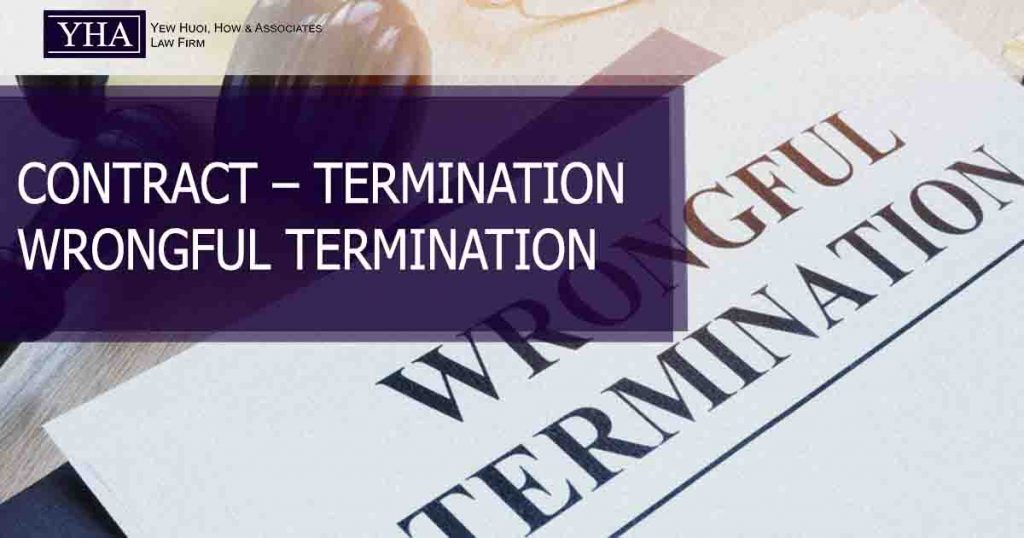What if you have invested into a project with another party to run an operation. However, because they had issued a termination notice, you were then unable to carry out your contractual obligations under the agreement and no reason was given by them. Can I sue them for wrongfully terminated contract?
- Yes, you can bring a legal action against that party for wrongfully terminated contract as he or she does not provide any reason for the termination. Wrongful termination is a repudiation of the contract and hence a serious breach of the contract in and of itself.
Q. What is the right to terminate?
- Termination can be divided into two categories: 1) termination for cause, often known as termination for default; and 2) termination for convenience. There is no general contract concept that allows termination for convenience, thus termination for convenience can only come from the conditions of a contract that allow it. Only a serious breach of the contract by the other party can result in a termination for cause.
Q. What qualifies as a material breach to the contract?
- A review of contract case law may be used to determine what constitutes a material breach or default, or the contract itself may specify what constitutes a material breach or default. A breach of contract occurs when a party fails to meet one or more of the contract’s terms. However, only a material breach entitles the non-breaching party to treat the material breach as a violation of the entire contract, and a material breach entitles the non-breaching party to treat the material breach as a breach of the entire contract.
The following facts are considered by courts in determining whether a breach was material:
- Was there a failure of an essential contract element that led the non-breaching party to sign the contract?
- Did the breach affect the content of the contract, defeating the purpose for which the non-breaching party signed it?
- Did the breach affect a crucial subject that was central to the contract’s essence?
- Did the non-breaching party get significantly less or something different than what he had bargained for?
Q. What damages can I claim for a wrongfully terminated contract?
- Direct damages, consequential damages, and all other damages necessary to put the non-breaching party in the same position it would have been in if the contract had been fully performed by the parties are available to the non-breaching party following its termination of the contract or in response to a wrongful termination by the other party. Besides that, the courts will also provide remedies such as specific performance and rescission to put the non-breaching party back in its original position.

